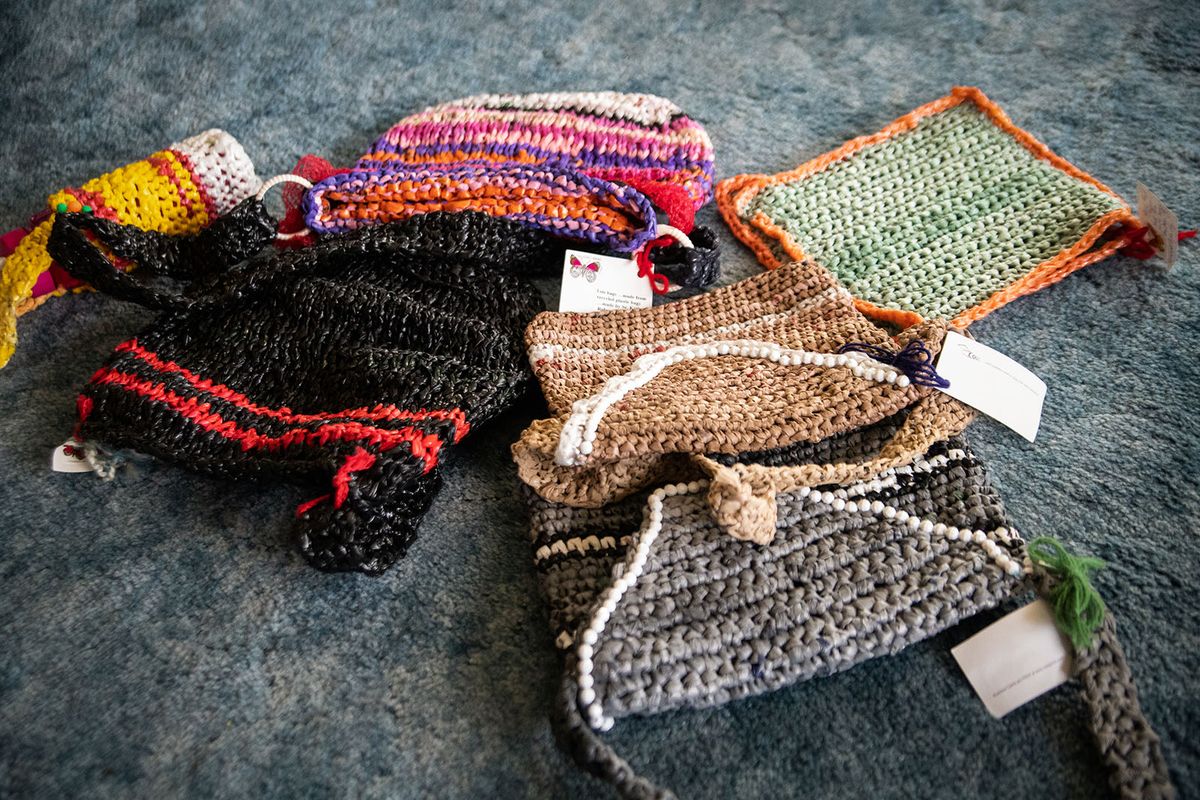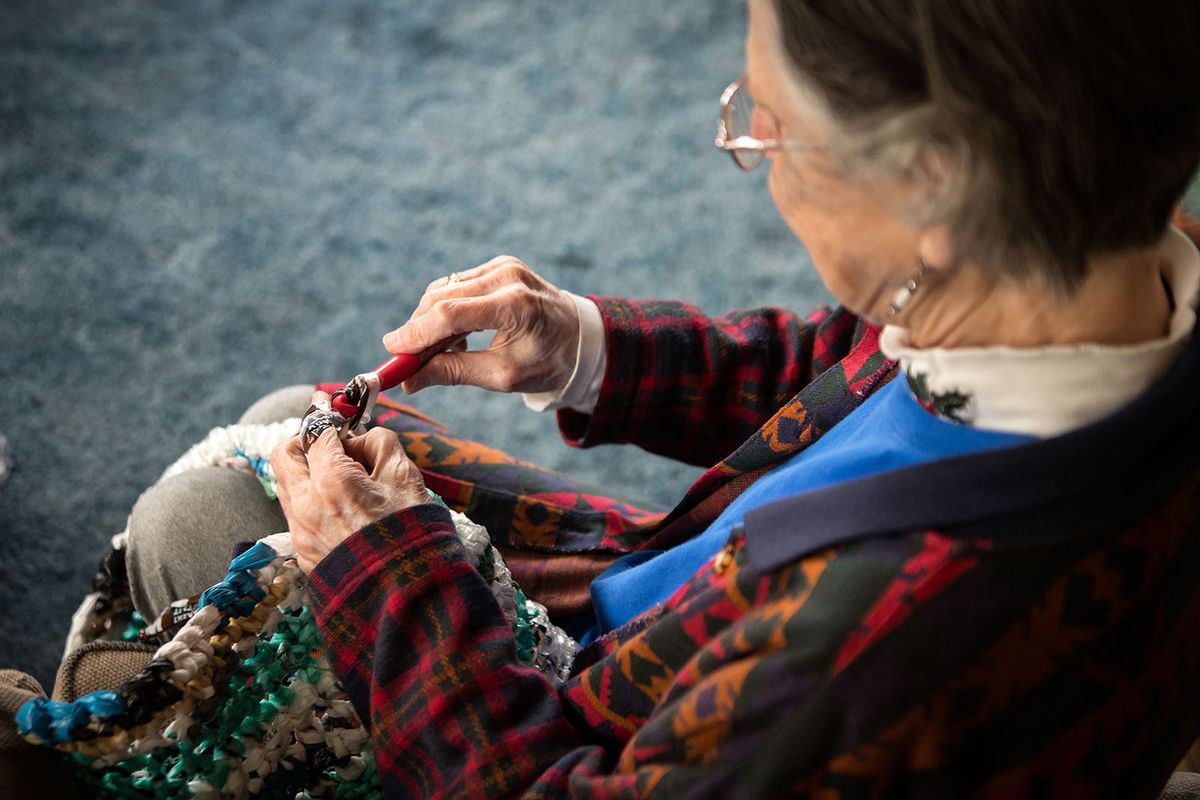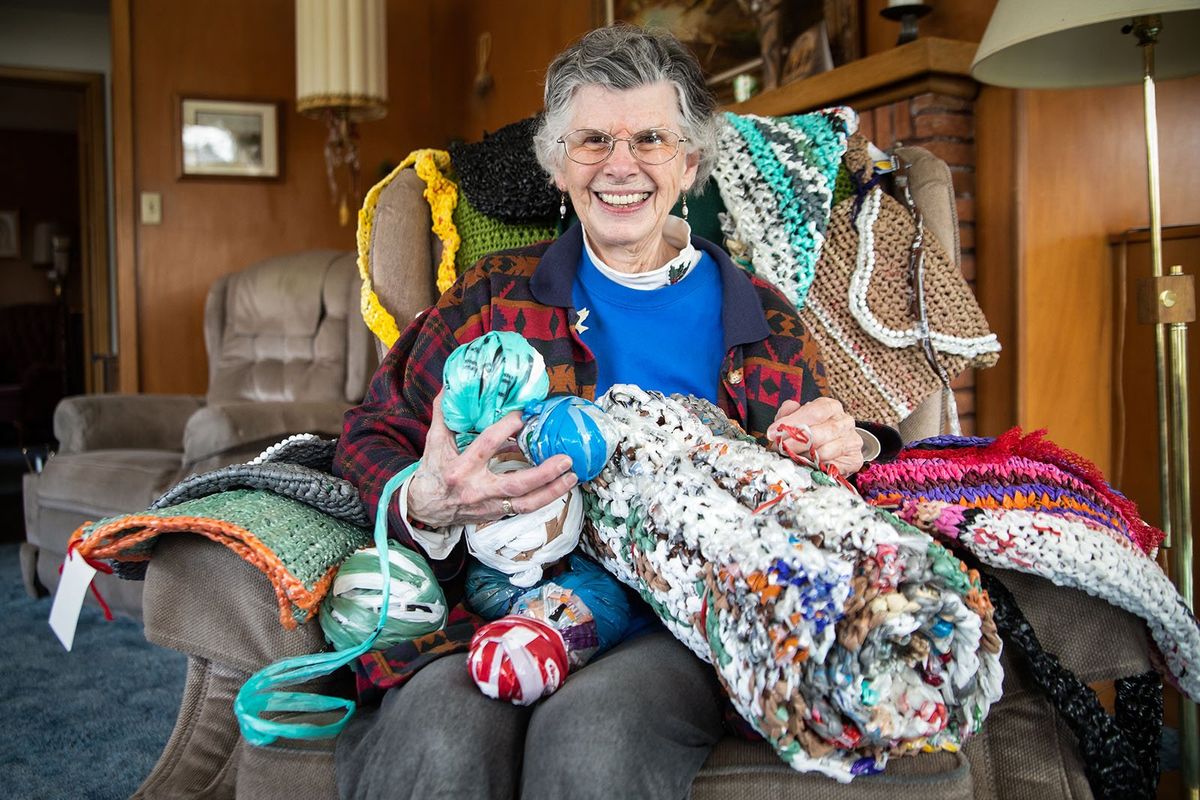Pandemic projects: Nun makes sleeping mats with recycled plastic bags for homeless

Sister Kathy Roberg found a way to care for our planet while caring for some of its most vulnerable inhabitants.
Since 2015, she’s made sleeping mats for the homeless from plastic bags. When the pandemic limited many of her volunteer activities, Roberg channeled her energy and time into the mats. To date, she’s made 272 of them.
“I’ve actually given away 350, because, for a time, my cousin had a group that made them,” Roberg said. “I made so many mats, my first crochet hook broke!”
Sister Kathy Roberg demonstrates using a Q hook to crochet plastic bags into mats for the homeless on March 25, 2021. (Libby Kamrowski/ THE SPOKESMAN-REVIEW)Buy a print of this photo
At 18, she joined the Franciscan Sisters of Perpetual Adoration and spent 21 years teaching first grade, before transitioning to teaching English as a second language. However, her reverence for Mother Earth comes from her father.
“My dad cared for the earth, and he was very peace- and justice-oriented,” she said.
One day, as she served at the Women and Children’s Free Restaurant, she saw a woman making something out of plastic grocery bags.
“She was knitting something red and white – a tote bag, and I said, ‘Oh! I have to learn to do this!’ ” Roberg recalled.
After learning the technique, she made her own tote that she still uses for her weekly shopping. But a newspaper article left in her room is what sparked the sleeping mat mission.
While teaching in the Czech Republic, she lent her room to another nun.
“The younger sister left an article in my room about sisters in St. Louis making sleeping mats for the homeless,” Roberg said.
Roberg took that as a sign and got busy.
The most tedious part of the project is making the plarn balls (plastic+yarn). Any type of plastic bag can be used; bread bags, grocery bags, newspaper bags, and Roberg has a steady supply coming in.
To make plarn, she smooths and flattens the bags, cuts off the handles and glued ends, then cuts the remaining bag into strips using a rotary cutter. The resulting loops are connected via slip knot and rolled into a ball.
Roberg has boxes filled with plarn, thanks to her cousin who still makes the balls for her.
“Wal-Mart recycles the bits and pieces, so I don’t have to put them in the garbage,” she said.
Using a Q crochet hook, and a chain stitch, she creates the mats.
“It takes 300 to 350 bags to make one mat, and about 15 hours,” Roberg said.
The colorful mats provide a moisture-resistant barrier to spread under a sleeping bag or blanket, and Roberg said she’s heard the mats are bug-resistant, too.
She buys clothesline rope at the Dollar Store to fashion ties for the mats.
“I always tuck a soft scarf, or a pair of socks or gloves into them,” she explained.
She’s never forgotten the first time she gave one away.
“I went to Safeway, and it was pouring rain,” she recalled. “I saw a guy just dripping wet. I said, ‘I have a sleeping mat in my car. Would you like it?’ ”
“Oh! God bless you,” the gentleman said. “Thank you so much.”
Until COVID-19 clipped her busy volunteer schedule, she regularly handed out the mats to folks gathered around the House of Charity. She always has a couple in her car, and is delighted when she sees her mats affixed to people’s backpacks.
“It’s good for the environment,” Roberg said.
And it warms her heart when she’s embraced by recipients of her handiwork.
“I’ve gotten hugs from the homeless,” she said, smiling.
Smoothing a mat in-progress across her lap, Roberg said she has no plans to cut back.
“As long as there are plastic bags and my fingers are still agile, I’ll keep going,” she said. “When I run out of plastic bags, I’ll quit.”
Cindy Hval can be reached at dchval@juno.com





